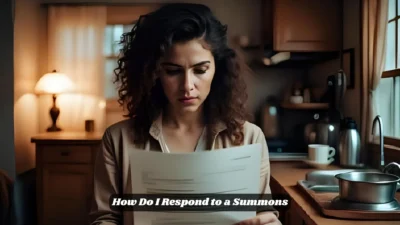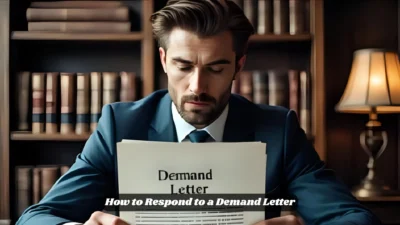When someone searches for how must a replacing producer respond to an applicant wishing to replace existing life insurance, they are often looking for the proper, professional, or polite way to handle this sensitive situation.
This article will immediately provide those answers in simple, easy-to-use words and phrases.
In different situations, producers need to know the right way to respond.
Sometimes, they may need to use formal words. Other times, casual or workplace-friendly language is better.
Knowing the right way to express this can make all the difference in helping the applicant while following rules and building trust.
Let’s explore how you can say this in various ways.
Formal Ways to Say How Must a Replacing Producer Respond to an Applicant Wishing to Replace Existing Life Insurance
- It is necessary for the replacing producer to provide the applicant with full disclosure.
- The producer must ensure all regulatory steps are carefully followed.
- The producer is required to offer complete and accurate comparisons.
- It is important to furnish all necessary replacement forms to the applicant.
- The replacing producer should provide clear, written explanations of the new policy.
- The producer must supply a detailed outline of coverage differences.
- The replacing producer should make sure the applicant fully understands all changes.
- It is the producer’s responsibility to highlight any loss of benefits.
- The producer should carefully review the applicant’s current policy before proceeding.
- The replacing producer must confirm the applicant’s informed consent.
- The producer is obligated to discuss possible surrender charges.
- The producer should present the cost comparison in a clear format.
- The replacing producer must advise on the impact of the replacement.
- The producer should verify the suitability of the new policy.
- The replacing producer must document all communication with the applicant.
- The producer is expected to guide the applicant through the state-required forms.
- The replacing producer must explain any tax implications.
- The producer should emphasize long-term financial impacts.
- The replacing producer must assure compliance with all legal standards.
- The producer should carefully follow the replacement process as set by law.
- The producer must protect the applicant’s best interests.
- The replacing producer should submit all signed disclosures promptly.
- The producer is responsible for ensuring the applicant’s understanding of coverage lapses.
- The replacing producer should review replacement regulations in the applicant’s state.
- The producer must explain the free-look period.
- The replacing producer must respect the applicant’s decision-making timeline.
- The producer should disclose the possible effect on contestability periods.
- The replacing producer must confirm receipt of all required documents.
- The producer should stress the importance of reviewing all policy details.
Informal Ways to Say How Must a Replacing Producer Respond to an Applicant Wishing to Replace Existing Life Insurance
- The producer should walk the applicant through the whole thing.
- They need to make sure the applicant really gets it.
- They should double-check the old policy first.
- It’s good to break down what’s changing.
- They should talk through the pros and cons.
- They need to share all the key details upfront.
- It helps to lay out all the paperwork clearly.
- The producer should let the applicant know about any fees.
- They should make the switch easy to understand.
- They need to give the full picture.
- It’s best to show what’s better or worse in the new plan.
- The producer should talk openly about the risks.
- They should point out if anything is going to be lost.
- They need to make sure the new policy is a good fit.
- They should keep notes on every talk.
- It’s smart to go over what the rules say.
- The producer should explain anything that could cost extra.
- They should help the applicant compare prices.
- They need to walk the applicant through any forms.
- They should answer all questions fully.
- They need to check if the applicant is comfortable moving forward.
- The producer should help sort out any worries.
- They should explain that some things might not carry over.
- They need to show all the numbers side by side.
- They should tell the applicant about the free trial period.
- They should explain if waiting might be better.
- They need to be clear about how the switch works.
- The producer should help with all the paperwork.
- They should make sure nothing important gets missed.
- They need to put the applicant’s needs first.
Idiomatic Ways to Say How Must a Replacing Producer Respond to an Applicant Wishing to Replace Existing Life Insurance
- The producer should lay all cards on the table.
- They need to spell it out.
- They should go the extra mile.
- The producer must cover all the bases.
- They need to leave no stone unturned.
- They should play it by the book.
- The producer must call a spade a spade.
- They should put everything on the line.
- They need to hand-hold the applicant.
- They should dot the i’s and cross the t’s.
- The producer should get their ducks in a row.
- They need to make it crystal clear.
- They should not beat around the bush.
- They must keep everything above board.
- They should lay it out in black and white.
- They need to walk a fine line.
- They should tell it like it is.
- The producer must keep all parties in the loop.
- They should go over everything with a fine-tooth comb.
- They need to read the fine print together.
- They should get everything squared away.
- The producer should cross that bridge when they come to it.
- They need to nip confusion in the bud.
- They should hit the nail on the head.
- The producer should set the record straight.
- They need to stay on the safe side.
- They should pass the torch properly.
- The producer must draw a clear line.
- They should hold the applicant’s hand through the process.
- They need to leave nothing to chance.
Professional Ways to Say How Must a Replacing Producer Respond to an Applicant Wishing to Replace Existing Life Insurance
- The producer should provide complete transparency at every step.
- They need to deliver all required forms promptly.
- The producer must present a detailed side-by-side policy analysis.
- They should outline potential risks and benefits clearly.
- The producer must ensure client understanding through thorough explanations.
- They should comply fully with state replacement guidelines.
- The producer must document every interaction.
- They should proactively address all client questions.
- The producer must confirm informed consent in writing.
- They should provide clear comparison charts.
- The producer must disclose surrender charges in detail.
- They should confirm that the replacement is in the client’s best interest.
- The producer must follow industry regulations carefully.
- They should explain the impact on contestability periods.
- The producer must present cost implications with accuracy.
- They should review the client’s current policy in depth.
- The producer must complete all required replacement forms.
- They should confirm the client’s receipt of all disclosures.
- The producer must advise on possible tax consequences.
- They should explain how the free-look period applies.
- The producer must respect the client’s decision timeline.
- They should maintain clear, professional communication throughout.
- The producer must verify suitability based on the client’s financial needs.
- They should provide written summaries for complex terms.
- The producer must ensure all required signatures are obtained.
- They should submit documentation in a timely manner.
- The producer must advise on the effect on policy guarantees.
- They should regularly update the client during the transition.
- The producer must ensure regulatory compliance at each step.
- They should prioritize client education during the replacement process.
Conclusion
Choosing the right way to say how must a replacing producer respond to an applicant wishing to replace existing life insurance is key to handling the process with care and professionalism. Whether using formal, informal, idiomatic, or professional language, each situation calls for the right tone and clarity. Learning and practicing these expressions will help producers respond confidently and correctly in every case.

Luna Bennett is a passionate American author known for her fresh perspective and captivating storytelling. With a modern approach to writing, Luna weaves thought-provoking narratives that explore human emotions, personal growth, and the complexities of everyday life. Her writing style is both relatable and inspiring, making her a favorite among contemporary readers.
Based in the United States, Luna spends most of her time in her cozy office, surrounded by books and her ever-present laptop. She draws inspiration from real-life experiences, meaningful conversations, and the quiet beauty of simple moments. Luna is not only dedicated to writing but also to connecting with her readers, often sharing behind-the-scenes glimpses of her creative process.
Some of her most celebrated works include “Whispers Between Pages,” “The Art of Starting Over,” and “Beneath the City Lights.” These books showcase her talent for blending heartfelt storytelling with modern-day themes.




